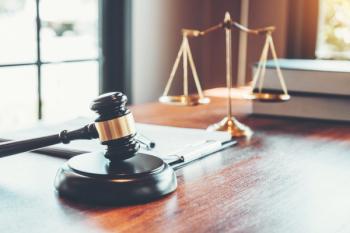
- Dermatology Times, October 2021 (Vol. 42. No. 10)
- Volume 42
- Issue 10
Is There Liability if I Vaccinate My Staff and Something Goes Wrong?
In this month's Legal Eagle column, David J. Goldberg, MD, JD, addresses the question of what private practice dermatologist have to consider with Covid-19 vaccines.
Dr Shot is a leading dermatologist in his community and is known for his expertise in cutaneous infectious diseases. He has a private dermatology practice and is on staff at several local hospitals and a nearby major university dermatology residency program. He is considering setting up his office to provide COVID-19 vaccines.
Shot also has a rigorous Occupational Health and Safety Administration program in his office. Some of his staff have already received their vaccines in other facilities. However, many of his unvaccinated staff members are under age 30 years and are increasingly concerned about the risk of infection in younger people. They ask him to administer their COVID-19 vaccinations.
He understands their concerns about potential exposure but is equally concerned about what his liability will be if they have an adverse reaction to his administration of their vaccinations. Shot is well aware that 1 of the vaccines, (Comirnaty; Pfizer-BioNTech) now has full FDA approval. He knows that the US government and many states now mandate that certain groups be vaccinated. Will that protect him from his staff suing him?
A close parallel to Shot’s issue occurred almost 20 years ago when the White House announced its smallpox vaccination plan. The first people to be vaccinated would be 500,000 military personnel, then health care workers, and finally, in 2004, the vaccine would be made available to the public at large. The original plan was to start immunizing health care workers by December 15, 2002. The “immunity provisions” of the Homeland Security Act would be there to provide some immunity (against possible lawsuits) for those administering the vaccine—the program was halted early, in 2003.
Section 304 of the Homeland Security Act provides immunity for “covered per- son(s) deemed to be an employee of the Public Health Service with respect to liability arising out of administration of a covered countermeasure against smallpox.” The act defines person to include health care institutions. Deeming health care providers of the smallpox vaccine to be de facto employees of the public health service means that any claims for their negligence must be filed against the federal government under the Federal Tort Claims Act (FTCA).
However, the FTCA waives sovereign immunity of the United States and allows for certain tort claims to be made against the United States and its “employees.” It should be noted that, in general, the federal government is substituted
for the defendant employee physician in such situations. If the smallpox example applies to the current coronavirus vaccine, Shot should have immunity for most problems associated with the vaccine. Will his staff have a cause of action against the federal government if they have complications from the vaccine?
Previous case law suggests that aggrieved plaintiffs rarely can recover from the government for risks that the government was aware it was creating. Because the risks of the COVID- 19 vaccine are increasingly well described, by choosing to immunize a given class of people, the government is making a knowing discretionary decision to expose that class of people to the risks. This well-described “discretionary authority doctrine” makes it unlikely Shot’s staff will be able to bring a case against the US government.
Despite this legal rationale, it is impossible to know exactly what would happen if such legal action arose. Legal scholars have suggested that the best analogy to future similar litigation is the atomic fallout in which people downwind from nuclear test sites sued the government for injuries allegedly caused by exposure. In those cases, a higher appellate court ruled that since the government had decided to expose these people to nuclear fallout, knowing the risks of fallout, the government was not liable under the FTCA.
The Homeland Security Act, as written, would require that in order to recover monetary damages under the FTCA, people injured by the COVID-19 vaccine prove that the government, or people acting on its behalf, were negligent in administering the vaccine. Simply proving the vaccine harmed them will not be enough. Injured plaintiffs would have to show that (1) there was no screening for contraindications and/or (2) treated persons were not informed of the reasonable risks of the vaccine. Shot and the US government will likely have no liability as long the issues are well documented and there is an appropriate explanation of the public policy issues behind administering of the vaccine.
Articles in this issue
over 4 years ago
Tap the Tax, Savings Potential of Cash Balance Plansover 4 years ago
Hair and Skin Diversity Examinedover 4 years ago
Rosacea Update: Facial Erythema’s Importanceover 4 years ago
Connecting Skin Diseases and COVID-19over 4 years ago
FDA Announces Action on Sunscreensover 4 years ago
Rejuvenating Laser Leads to Acne Agminate-Like Reactionover 4 years ago
New Frontiers Open for AD, Eczema Solutionsover 4 years ago
Pipeline Updates in Melanomaover 4 years ago
FDA Requiring Black Box Warning for Certain JAK InhibitorsNewsletter
Like what you’re reading? Subscribe to Dermatology Times for weekly updates on therapies, innovations, and real-world practice tips.









